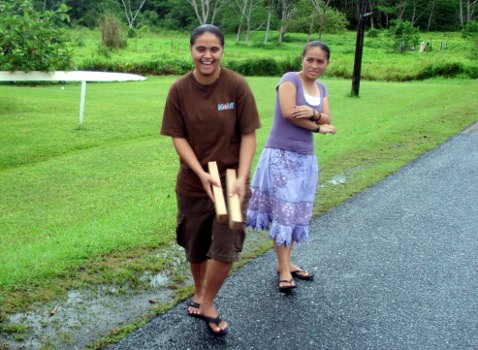
Vanessa and Greda

Vanessa and Greda
The wood two by fours were for clapping. The time for thirty claps synchronized to the echo arrival was measured. Dividing by thirty yielded the flight time for one echo. A GPS was used to determing the echo flight distance. Time versus distance was plotted for a number of buildings, with the resulting slope being the speed of sound.
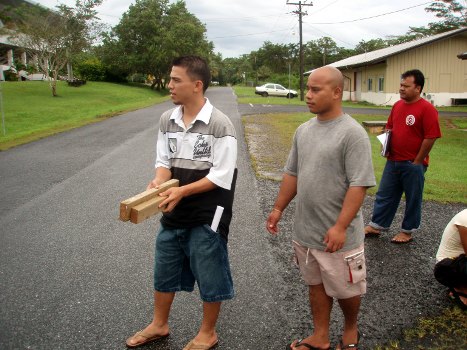
Simson listens for echoes
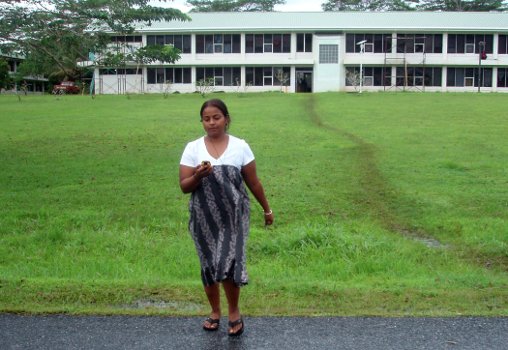
Shirlynnda measured the echo flight distance
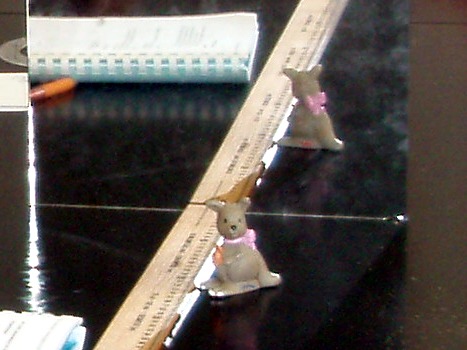
Measuring image depth versus object distance for a mirror
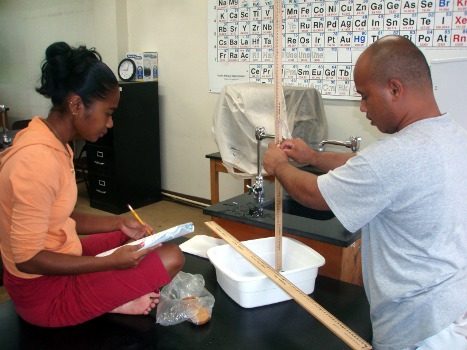
Mihter and John Dale work on measuring the angle to a penny in the tub
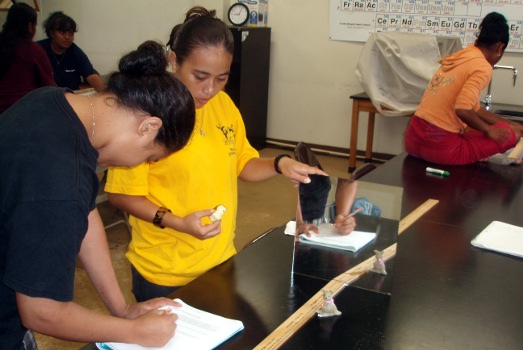
Vanessa and Greda record their results
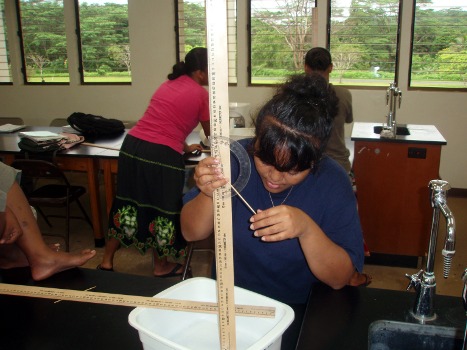
Belinda works out the angle of refraction
The errors in the measurement of the angle exceeded the differential in the dry and weight angle. This laboratory has since been modified.
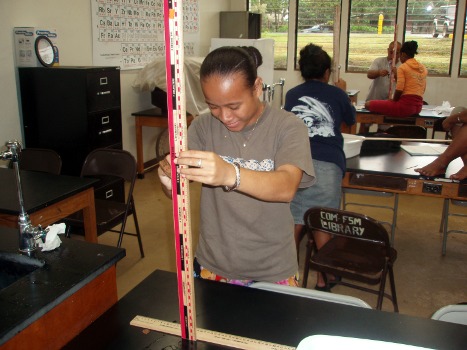
Rhonda
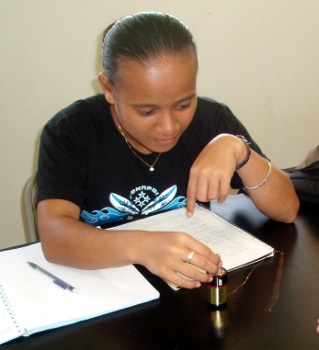
Rhonda works on a lighting a bulb with a single wire and a dry cell.
Although this first portion of this three-part laboratory is an activity typically done in elementary or secondary school, a number of students had never engaged in this activity. The activity leads to the concepts of an open circuit, a closed circuit, and a short circuit.
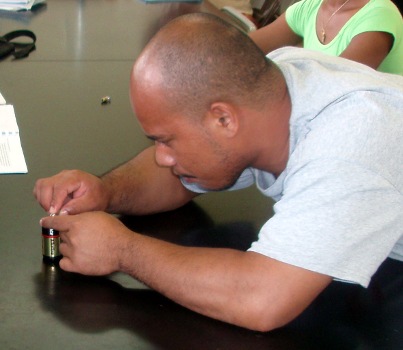
John Dale working on lighting his bulb
Laboratory thirteen is a three part laboratory. In part one students gather flowers and create floral pigment solutions using boiling water. In part two they test their solutions against a known acid and base. Once the best litmus fluid is determined, the students use that floral pigment fluid to determine whether common household substances are acids or bases.
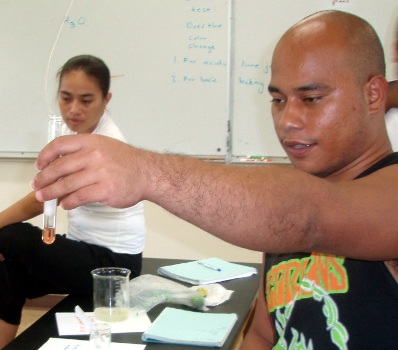
John Dale measures an acid
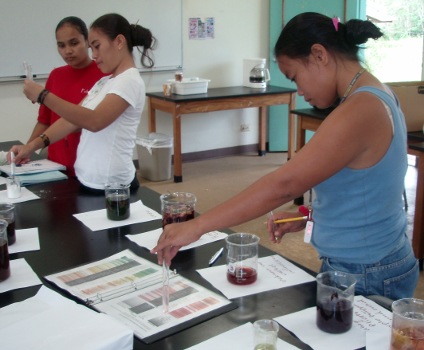
Aquila color comparison
Aquila checks against a chart with color names to find a best-possible descriptor word for the color of her solution. The students often have a limited vocabulary with respect to shades and hues of colors. The color chart helps.
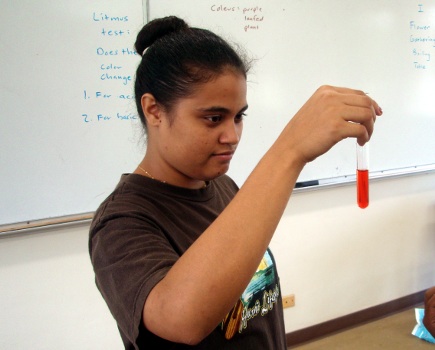
Vanessa color change check
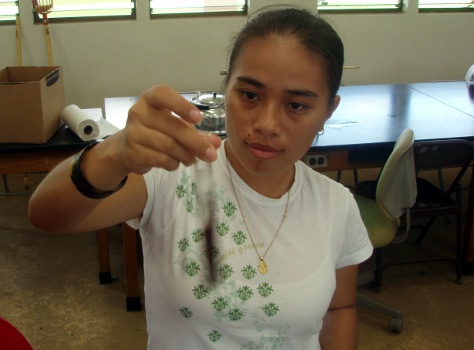
Greda mixing
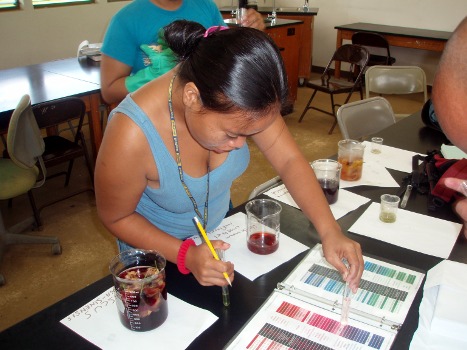
Aquila color matching
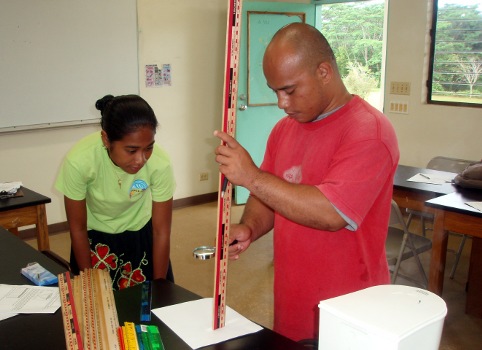
Mihter and John Dale work out the focal length
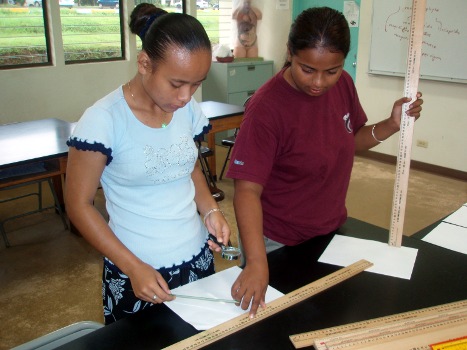
Rhonda, Shirlynnda
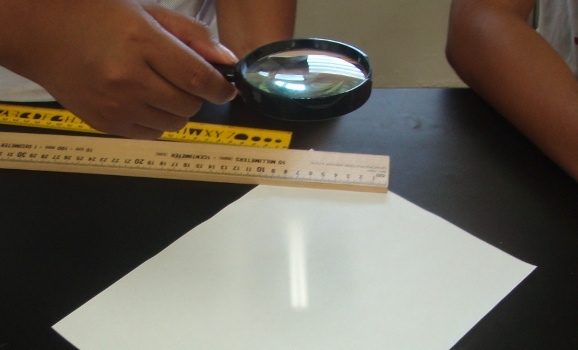
An example of the focal length determination
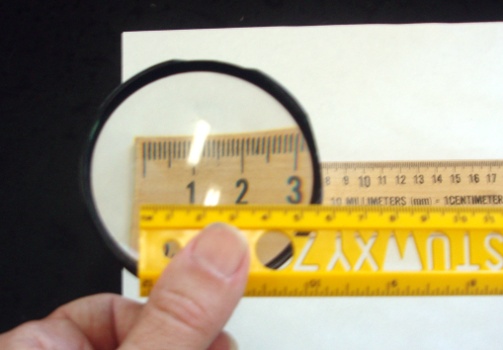
Apparent magnification
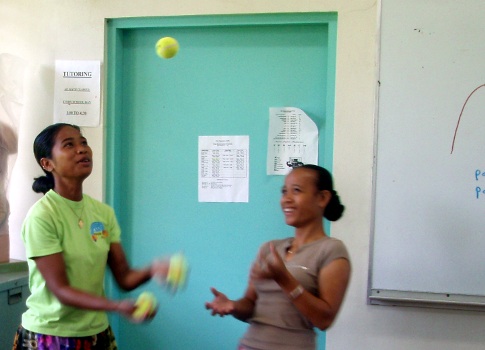
Mihter, Rhonda
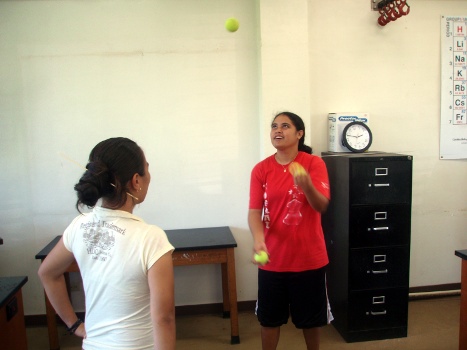
Vanessa